LONDON UNIT
The SMPBI is pleased to confirm that Comrades in London are building an active unit for the current capital. Anyone who wishes to get involved should email the party at the main contact address -
jointhesmpbi@gmail.com. Activists in the Home Counties are urged to help out the London Unit as it gets established.
Party Artist
We would like to welcome on board Sean Cundy, who is taking up the role of SMPBI Art Director. He will be adding to the skills of our other artistic Comrades, and bringing in his own distinct style which will be utilised in making very visually impressive propaganda. For those who are not aware of Sean's work, have a look at his website:
https://www.seanrcundy.com/
Poetry and Human Rights
Yesterday evening, SMPBI Culture Officer, David Parry, held a very successful event at Fitzroy House, London.
Actresses
Gerry Skeens and Julia Munrow at our "Poetry and Human Rights" event...
The event was hosted by Sarah from Fitzroy House, who put on free food as well as providing the venue. This was a very successful event, putting focus upon the very important issue of Human Rights, looking into the subject through the medium of Poetry.
Banned from Twitter for stating FACTS
Our Twitter account was temporarily suspended by the biology denial bigots of Twitter, for stating the undeniable fact that an individual born with ovaries is female, and an individual who can at any time in his life produce sperm, is male. The identity politics obsessives will use all manner of pseudo-scientific gymnastics to justify an ideology which is effectively the enshrinement of paedophilia and a cross-dressing fetish as a virtue. The SMPBI stands up for sanity, nature, and the protection of children. We will not bow to transfascism and to the identity cult which push the nonsense that 'feelings' matter more than biology. This puts us at odds with the liberal extremists who dominate social media, and this is something to take pleasure from.
Tellingly, although our account was put on a ban, the mentally ill men who made threats of violence against the party, were not sanctioned. The sooner the diseased liberal society is replaced by the wholesome healthy Socialist Motherland we crave, the better.
Message to May: just go
Source: http://www.cpbml.org.uk/news/message-may-just-go
There’s only one way of making sense of Theresa May’s bizarre behaviour: she is doing her utmost to block the only real Brexit – no deal, just walk away. Delay, delay, until lack of preparedness twists the arms of her timid MPs.
She had to postpone the vote on her agreement with Brussels. She was going to lose by a large margin, pinned between a revolt from her own side with MPs under huge pressure from their constituencies, and a Labour Party under similar pressure but bent only on manoeuvring its way into power.
There’s an elephant in the parliamentary chamber: the 17.4 million who voted to leave, and who won’t go away.
If she’s allowed to remain in office, May’s next move will be to revoke or postpone Article 50. Given the European Court of Justice ruling yesterday (Monday), that’s clearly the tactic. With no effective deadline there will be no leaving, just interminable pretend negotiations. Nothing will progress while she is prime minister.
Under her deal, the EU would keep our cash and control of our laws, trade, borders and waters – and, backstop or not, even of our defence. This is the deal that the EU has always wanted, a deal that seals us back into the EU, paying it however much it wants, with no rebate. A deal under which we would have no say, no vote, no control.
And, so far, only two Cabinet ministers have resigned since the publication of the deal. Such are the political depths to which government in Britain has sunk. So low is the public’s expectation of politicians that no one is surprised. It’s hard to imagine a further decline in standards. But just wait: it will surely come.
Now May is off to Brussels again, arms raised up in mock supplication. She should stay there, and leave the job of implementing Brexit to someone who believes in it.
And then the machinery of government at national and local levels must break out of May-induced paralysis and get down to planning, as some have already done.
Above all, the people must stand up loudly and defend Brexit. They must enforce their will.
The Forum
(Link to the Forum: https://www.tapatalk.com/groups/smpbiforum/index.php)
The Forum is steadily building up. There is still an issue with SMPBI members not taking a moment to register. To be fair - and you will know who this refers to! - we have members who are not computer literate, members who do not like social media, and members who have a very hectic work/family life. If you are able to join the forum, please do so. If you are not comfortable with the idea of joining the forum or cannot for any reason, please think of ways you would like to contribute (ideally in real world activities) and we can arrange something which is more to your liking.
The technical difficulties of posts going to approval, have been fixed. You can now post at will. The forum is home now to a a mixture of SMPBI members and Socialists/Communists who are not members but are of a similar mind. The old Socialist Phalanx pretty much died. Our forum can be a new home to decent Comrades who are awake to the lies of Trotskyism and who reject the bourgeois impostor which has become a thorn in the side of the anti-globalist Socialist movement.
Recommended Reading
Georges Sorel – Reflections on Violence
Georges Sorel - Social Foundations of Contemporary Economics
Georges Sorel - Illusions of Progress
Georges Sorel - From Georges Sorel
Hegel – Elements of the Philosophy of Right
Hegel - Lectures on the Philosophy of History
Marx – Das Kapital
Marx - On the Jewish Question
Marx- Notes on James Mill
Marx - Economic and Philosophic Manuscripts of 1844
Marx- Theories of Surplus Value
Marx - Value, Price and Profit
Marx - Grundrisse
Marx- A Contribution to the Critique of Political Economy
Alexander Dugin – The Fourth Political Theory
Alexander Dugin – The Rise of the Fourth Political Theory: Vol.II
Alexander Dugin - Martin Heidegger: The Philosophy of Another Beginning
Alexander Dugin - Last War of the World-Island: The Geopolitics of Contemporary Russia
Alexander Dugin - Eurasian Mission: An Introduction to Neo-Eurasianism
Alexander Dugin - Ethnos and Society
Roberto Fiore & Gabriele Adinolfi - Noi terza posizione
Ernst Niekisch - Der Weg der deutschen Arbeiterschaft zum Staat
Ernst Niekisch - Politik und Idee
Fritz Wolffheim - First Address to the German Proletariat
Fritz Wolffheim – Factory Organisations? Or Trade Unions?
Heinrich Laufenberg - Zwischen der ersten und zweiten
Revolution
D. S. Mirsky - A History of Russian Literature: From Its Beginnings to 1900
Alceste De Ambris - Il Dannunzianesimo dopo Fiume
Sergio Panunzio - Stato nazionale e sindacati
Sergio Panunzio - La Persistenza del Diritto (Discutendo di Sindacalismo e di Anarchismo)
David D. Roberts - The Syndicalist Tradition and Italian Fascism
Robert Michels - Syndicalisme & socialisme en Allemagne
Robert Michels- Sozialismus und Faschismus in Italien
Timothy S. Brown - Weimar Radicals: Nazis and Communists Between Authenticity and Performance
Eduard Limonov - My Political Biography
Lyndon Larouche - Basic Economics for Conservative
Democrats
Lyndon Larouche - Dialectical Economics An Introduction to Marxist Political Economy
Lyndon Larouche -The Rothschilds, from Pitt to Rockefeller
Thomas D. Grant - Stormtroopers and Crisis in the Nazi
Movement: Activism, Ideology and Dissolution
Douglas Reed – Nemesis?: The Story of Otto Strasser
Otto Strasser – My Struggle
Otto Strasser – Hitler and I
Otto Strasser - Germany Tommorrow
Francis Parker Yockey – Imperium
David Brandenberger - National Bolshevism: Stalinist Mass
Culture and the Formation of Modern Russian National Identity 1931-1956
Vilfredo Pareto – Sociological Writings
Vilfredo Pareto - The Rise and Fall of Elites: Application of Theoretical Sociology
Werner Sombart – The Jews and Modern Capitalism
Mikhail Agursky - The Third Rome: National Bolshevism In The USSR
Alec Nove - The Economics of Feasible Socialism
Alec Nove – An Economic History of the USSR
Theodor Fritsch – The Sins of High Finance
Andrzej Walicki - Stanislaw Brzozowski and the Polish
Beginnings of 'Western Marxism'
Nikolay Chernyshevsky – What is to Be Done
Oswald Spengler – Prussianism and Socialism
Julius Evola – Metaphysics of War
Ernst Junger – The Worker: Dominion and Form
Ernst Junger - Storm of Steel
René de Chambrun - Pierre Laval, Traitor or Patriot?
Émile Janvion - Du syndicat de fonctionnaires
Thomas Carlyle – Selected Writings
Michel Aflaq - On the Way of Resurrection
Zeev Sternhell - Neither Right nor Left: Fascist Ideology in France
Peter Dodge - Beyond Marxism: The Faith and Works of Hendrik de Man
Gilbert Allardyce - "The Political Transitions of Jacques Doriot." Journal of Contemporary History. 1
Michael B. Loughlin - "Gustave Hervé's Transition from Socialism to National Socialism: Another Example of French Fascism?". Journal of Contemporary History. 36 (1): 5–39.
Hubert Lagardelle - The Agrarian Question and Socialism
Georges Valois - L'Homme contre l'argent
Ramiro Ledesma Ramos - Escritos filosóficos
Keith Preston – El Salvador: A War by Proxy
Keith Preston - The Tyranny of the Politically Correct: Totalitarianism in the Postmodern Age
Troy Southgate – Tradition and Revolution
Norman Finkelstein – The Holocaust Industry: Reflections on
the Exploitation of Jewish Suffering
Norman Finkelstein - Image and Reality of the Israel-Palestine Conflict
Norman Finkelstein - Beyond Chutzpah: On the Misuse of Anti-semitism and the Abuse of History
Kevin Macdonald – The Culture of Critique
Jose Antonio Primo de Rivera - Selected Writings
Richard Wolin – The Politics of Being: The Political Thought of Martin Heidegger
Gottfried Feder - Manifesto on Breaking the Shackles of Interest
Kerry Bolton – Peron and Peronism
Kerry Bolton - Stalin: The Enduring Legacy
Kerry Bolton - The Banking Swindle: Money Creation and the State
Kerry Bolton - Russia and the Fight Against Globalisation
Thomas Piketty – Capital in the Twenty-First Century
Carl Schmitt – Dictatorship
Carl Schmitt – The Crisis of Parliamentary Democracy
Alain de Benoist - On the Brink of the Abyss: The Imminent Bankruptcy of the Financial System
Alain de Benoist – The Problem of Democracy
Giovanni Gentile - The Philosophy of Marx
Giovanni Gentile - Hegelian Controversy
Giovanni Gentile - Marxism of Benedict Croce
Mao Zedong - Collected Sayings (Little Red Book)
Ho Chi Minh - Selected Writings 1920-1969
Leszek Kołakowski - Main Currents of Marxism
Dermot Hudson - In Defence of Juche Korea
Muammar al-Gaddafi - The Green Book
Enver Hoxha - The Artful Albanian: The Memoirs Of Enver Hoxha
Yanis Varoufakis - The Global Minotaur
Yanis Varoufakis - Modern Political Economics
Stanisław Brzozowski - Legenda Młodej Polski. Studia o strukturze duszy kulturalnej ("The Legend of Young Poland. Studies on the Structure of the Cultural Spirit")
Stephen Velychenko - Painting Imperialism and Nationalism Red: The Ukrainian Marxist Critique of Russian Communist Rule in Ukraine, 1918-1925
Kim Il Sung - For the Independent, Peaceful Reunification of the Country
Alexandre A. Bennigsen - Muslim National Communism in the Soviet Union: A Revolutionary Strategy for the Colonial World
Katherine Verdery - National Ideology Under Socialism: Identity and Cultural Politics in Ceausescu's Romania
Troy Southgate - Le Salon: Journal du Cercle de la Rose Noire, Volumes 1 & 2
Pierre-Joseph Proudhon - Property Is Theft!: A Pierre-Joseph Proudhon Reader
Charles Fourier - The Theory of the Four Movements
Robert Owen - A New View of Society and Other Writings
Fidel Castro - My Life
Sadaam Hussein - On Democracy
Kees Boterbloem - The Life and Times of Andrei Zhdanov, 1896-1948
David P. Chandler - Brother Number One, a Political Biography of Pol Pot
Martin Heidegger - Black Notebooks
Martin Heidegger - Being And Time
Antonio Gramsci - Prison Notebooks
Maxim Gorky - The Mother
Mikhail Sholokhov - And Quiet Flows the Don
Jens Schöne - The GDR: A History of the Arbeiter- und Bauernstaat
Klaus Morgenstern - DDR In Color
Frederic Chaubin - Cosmic Communist Constructions Photographed
Nikolai Ostrovsky - How the Steel Was Tempered
Erich Honecker - Cross Examined
Eric Hobsbawm - Revolutionaries
EP Thompson - The Making of the English Working Class
Christopher Hill - The World Turned Upside Down: Radical Ideas During the English Revolution
Malcolm X - The Autobiography of Malcolm X
M.K. Gandhi - An Autobiography: The Story of My Experiments with Truth
Costas Lapavitsas - Profiting without Producing: How Finance Exploits Us All
Costas Lapavitsas - Marxist Monetary Theory Collected Papers
Karl Polanyi - The Great Transformation: The Political and Economic Origins of Our Time
John Reed - Ten Days That Shook the World
Giambattista Vico - New Science: Principles of the New Science Concerning the Common Nature of Nations
Alison Weir - Against Our Better Judgment: The hidden history of how the United States was used to create Israel
Johann Gottlieb Fichte - Addresses to the German Nation
Slavoj Žižek - Trouble in Paradise: From the End of History to the End of Capitalism
Slavoj Žižek - Violence
Ilan Pappe - The Ethnic Cleansing of Palestine
Grover Furr - Khrushchev Lied
Stephen Mitford Goodson - A History of Central Banking & The Enslavement of Mankind
Stephen Mitford Goodson - Inside the South African Reserve Bank: Its Origins and Secrets Exposed
M. N. Roy - Selected Works
Tan Malaka - Naar de 'Republiek Indonesia
Guillaume Faye - A Global Coup
Hugo Chavez and Simon Bolivar - Hugo Chávez presents Simon Bolivar: The Bolivarian Revolution (Revolutions Series)
Hugo Chavez - My First Life
John J Mearsheimer - The Israel Lobby and US Foreign Policy
Harry E. Vanden - National Marxism in Latin America
Jose Carlos Mariategui & Harry E. Vanden (Translator) - Jose Carlos Mariategui: An Anthology
José Carlos Mariátegui - Seven Essays of Interpretation of Peruvian Reality
Louis Auguste Blanqui - Blanqui Reader (Verso edition)
Moses Hess - The Holy History of Mankind and Other Writings
Ernesto Che Guevara - Guerrilla Warfare
Virtue and Terror - Maximillian Robespierre
J.R. Jennings - Georges Sorel: The Character and Development of his Thought
Richard D Humphrey - Georges Sorel: Prophet Without Honor- A Study in Anti-Intellectualism
David Ohana - Georges Sorel and the Rise of Political Myth: Nihilist Order v. II
Michael Curtis - Three Against the Third Republic: Sorel, Barres and Maurras
Julian L. Laychuk - Ilya Ehrenburg: An Idealist in an Age of Realism
Joshua Rubenstein - Tangled Loyalties: The Life and Times of Ilya Ehrenburg
Anatol Goldberg - Ilya Ehrenburg: Writing, Politics and the Art of Survival
Anatol Goldberg - Ilya Ehrenburg: Revolutionary- Novelist- Poet- War Correspondent- Propagandist: The Extraordinary Epic of a Russian Survivor
Ilya Ehernburg - First Years Of Revolution 1918-21 Vol Two Of "Men, Years - Life"
Vladimir Lenin - State and Revolution
Vladimir Lenin - The Right of Nations to Self-Determination
J.V. Stalin - Trotskyism or Leninism?
Erik Van Ree - The Political Thought of Joseph Stalin: A Study in 20th Century Revolutionary
Karl Otto Paetel - National-bolschewismus und nationalrevolutionäre Bewegungen in Deutschland
Jean-François Thiriart - The Great Nation: Unitarian Europe - From Brest to Bucharest
Allen Douglas - From Fascism to Libertarian Communism: George Valois Against the Third Republic
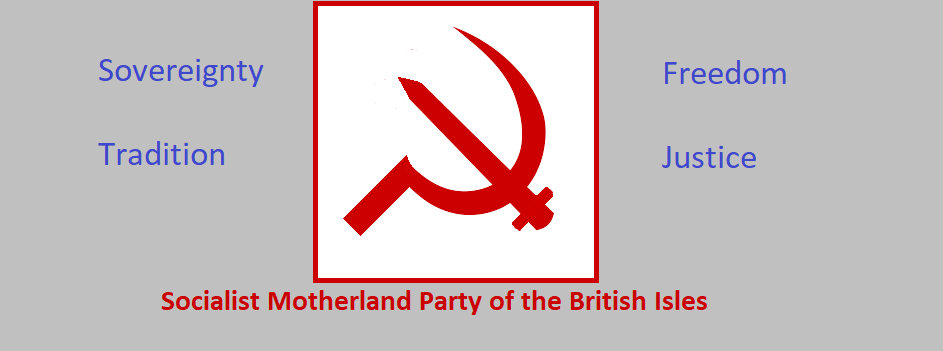


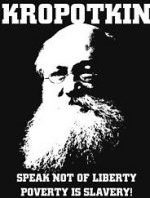
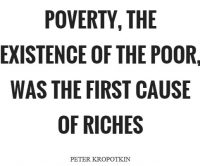
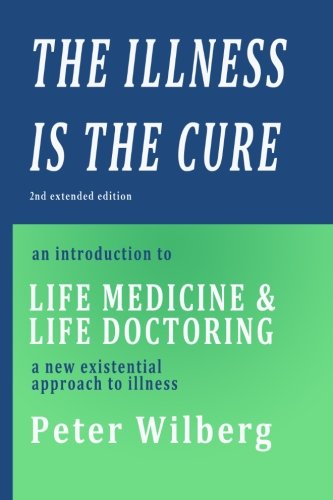






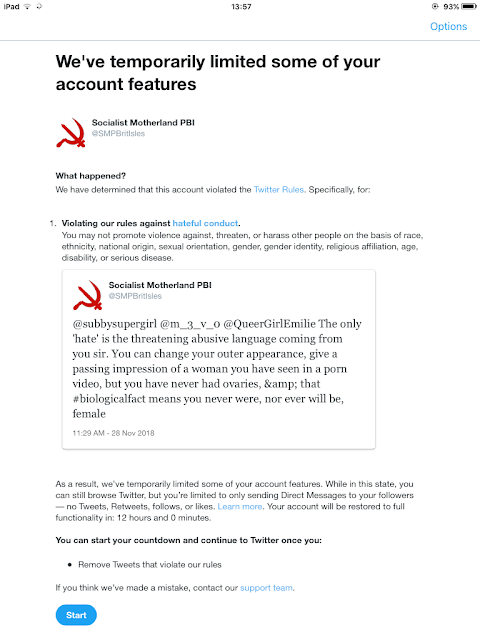


.jpg)
